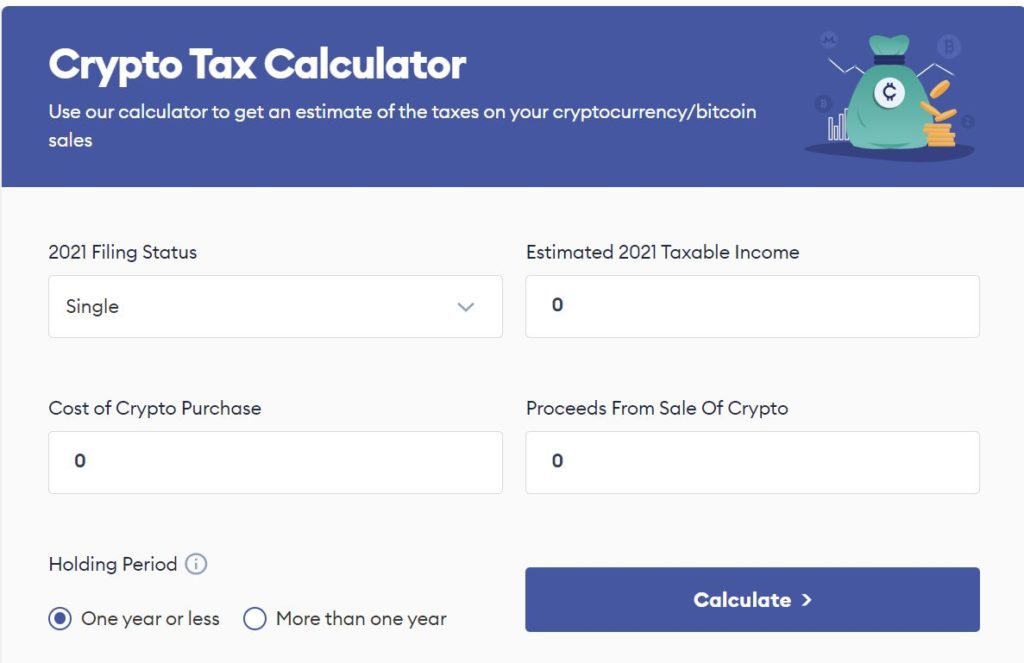Taxes and crypto are turning into hot items. Until a few years ago, nobody cared much about it. However, nowadays, the IRS and tax authorities in other countries are on the ball. Each country seems to have different laws as well.
That may be confusing, pending where you live. Some countries are crypto tax friendly. Portugal or Germany come to mind. On the other hand, some countries are rather harsh when it comes down to crypto taxes. For instance, in India. So, we’re going to have a look at how to calculate your crypto taxes.
How Do I Calculate Crypto Taxes?
Various countries tax crypto in different ways. So, it all depends on where you live. If you can afford it, you can move to a crypto-tax-friendly country. However, most of us haven’t hit the crypto jackpot yet. In other words, we need to sort out our respective tax situations.
An example is TaxBit, a crypto tax software. Here is a tweet about it:
Staking Rewards — how are they taxed?? https://t.co/Jk4Ma7oIOL
— TaxBit #1 Crypto Tax & Accounting Software (@TaxBit) August 2, 2022
For starters, let’s get rid of a common misconception. Just because crypto trading is pseudonymous, doesn’t mean it is tax-free. If you made a profit, and took it off an exchange, you’re most likely due some tax. More and more governments are starting to get involved in taxing crypto.
There are a few factors that play a role. This is based in the USA. Other countries may have different rules or laws. For example:
- The difference in the price you bought and sold your cryptos.
- Any exchange fees you paid.
- Your tax bracket
- Did you mine crypto
- Was there a hard fork?
- Did you receive airdrops?
- Sign up bonuses
However, there are also tax-free events. For instance,
- Buying crypto—Buying and holding crypto is tax-free.
- Coin and token swaps—As long as the total value they are worth doesn’t change.
- Gifting crypto to friends and family—This is tax-free. Tax is due once they decide to sell the crypto.
- Crypto donations—These are tax-exempt if donated to a registered charity.
The picture below shows a sample of a US tax calculator.
Source: Forbes
How Are Taxes Calculated on Crypto Trading Profits in the UK?
The HMRC doesn’t look at crypto as money or a currency. Instead, they see it as property. Similar to what they do with shares. There’s also no such thing as a specific crypto tax. It files under Capital Gains Tax (CGT) or Income Tax.
For UK residents, CGT can be up to 20% when you sell your crypto. Income tax can be as high as 45%. But what’s the difference between the two? Koinly has a handy guide on taxing crypto in the UK. They are a well-known online crypto tax accounting platform. Here is more info about both platforms:
1) Capital Gains Tax
Because the HMRC considers crypto as a capital asset, you pay tax when you dispose of it. Disposing of crypto includes, for instance:
- Selling crypto—For fiat, like GPB.
- Trading crypto—Swap it for other crypto or stablecoins.
- Spending crypto—On goods or services.
- Gifting crypto—Exemptions are a spouse or civil partner.
But this only comes into place once you made a profit. The HMRC even came up with some DeFi rules. However, they are not answering all DeFi-related questions. On the other hand, a UK taxpayer has a generous CGT allowance. In the 2020-21 tax year, that was at 12,300 GBP.
Also, if you earned up to 50,270 GBP, you pay 10% CGT. If you earn between 50,270 GBP and 150,000 GBP, or more, you pay 20%. Your capital gain is the difference between the price you bought at and when you disposed of it. If you have a profit, you pay tax. With a loss, you don’t, and you may use this as a tax reduction.
There are three tax breaks:
- 12,570 GBP Personal income tax allowance.
- 1,000 GPB Trading and property allowance.
- 12,300 GBP Capital gains tax-free allowance.
For more information, for instance, on income tax, check the Kionly article.
Just like #crypto, you'll pay tax on NFTs.
This means the same rules that apply to your crypto will apply to your #NFTs.
FYI we now support ERC-1155 & Solana NFTs 😉 pic.twitter.com/XxvKTDhUIe
— Koinly (@koinly) August 11, 2022
What Tax Software Should You Use to Calculate Your Crypto Taxes in the US?
There are many software options available to help you in calculating your US crypto tax. But first, we like to clarify the tax status in a nutshell.
In the US, the IRS also considers crypto as property. The IRS taxes short-term capital gains between 10% to 37%. It all depends on your tax bracket. If you hold crypto assets for longer than a year, taxes can be 1%, 10%, or 20%. It now depends on your income. In case you’re married, on your combined marital income.
Now, let’s move on to some software options to calculate your US crypto tax. For example, Koinly. Just as for the UK, this is the best software available. They have software for over 20 different countries. Including Germany, Switzerland, and France. Moreover, Koinly connects to:
- 353 crypto exchanges.
- 74 wallets.
- And 14 blockchain addresses.
It also allows you to connect with other tax software. It’s affordable, although there are no tax reports on free plans. Below is a picture of the Koinly webpage:
- Accointing: Great for beginners. The free version has up to 25 transactions. Accointing is easy to set up and connects to over 300 exchanges and wallets.
- ZenLedger—A good option for experienced users and businesses. ZenLedger integrates with over 400 exchanges. This includes over 30 DeFi protocols. Their free plan gives access to a tax pro. However, paid plans are per the number of transactions made.
A new version of the https://t.co/EBkgy6l3sE app is out now! 👀
What’s new? 👇
– Detailed portfolio & performance overview
– Visualization of your PnL
– Additional net profit chart
– Transaction history export
– Enhanced data filteringGet the app: https://t.co/2F5mKGW2Zk pic.twitter.com/y1ebFsUhur
— Accointing by Glassnode (@accointing) May 2, 2022
Conclusion
Paying tax on your crypto will become a common playground. Whether we like it or now, governments are becoming proactive with crypto taxes. There are some countries that have generous tax laws, but not all of us we can afford to live there.
Therefore, we gave some samples how you can calculate crypto tax. We also looked into the UK tax situation. For our US readers, we gave you some options for crypto tax software to use. It’s better to prepare yourself than to regret it afterward.
⬆️For more cryptocurrency news, check out the Altcoin Buzz YouTube channel.
⬆️Find the most undervalued gems, up-to-date research and NFT buys with Altcoin Buzz Access. Join us for $99 per month now.





























